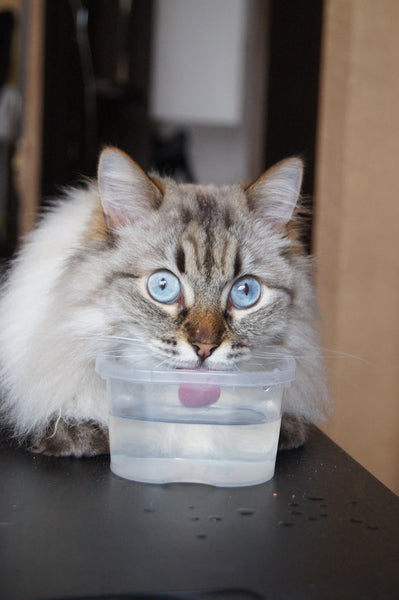
Cats are more than just pets; they're beloved members of our families. But when our furry friends suffer from urinary infections (UTIs), it can be distressing for both the cat and the owner. The good news is that many UTIs are preventable, and one surprising tool in your arsenal is choosing the right cat litter. In this blog post, we'll delve into the causes of cat UTIs and explore how you can use healthy cat litter as part of the solution. Let's help your feline friend stay happy, healthy, and UTI-free!
Understanding the Causes of Cat UTIs
Before we jump into prevention strategies, it's essential to understand what causes UTIs in cats. Here are some common culprits:
-
Bacterial Infections: Bacteria, such as E. coli, can enter your cat's urinary tract, leading to infection. This can happen when bacteria from the litter or their environment come into contact with their sensitive areas.
-
Dehydration: Cats are notorious for not drinking enough water. When they become dehydrated, it can lead to concentrated urine, making it easier for bacteria to thrive.
-
Bladder Stones: These mineral deposits can form in your cat's bladder, creating an environment ripe for infection.
-
Stress: Cats can be sensitive creatures, and stress can weaken their immune system, making them more susceptible to UTIs.
-
Diabetes and Other Health Conditions: Certain underlying health issues, like diabetes, can increase the risk of UTIs.
Now, let's explore how you can prevent these pesky infections.
Preventing Cat UTIs: The Role of Healthy Cat Litter
-
Hydration is Key: Encourage your cat to drink more water by providing a clean and fresh water source. Some cats prefer running water from a fountain, so consider investing in one.
-
High-Quality Cat Food: Feeding your cat a balanced and high fiber diet can help prevent UTI. For dry food, opt for kibbles that are high in fiber with more than 4% crude fiber. Balance it with a mix of wet food for extra hydration. Our veterinarian recommends the following high fibre 4%-8% dry food brands: Royal Canin Urinary Care, Hair & Skin, and Hairball; iCat Indoor Long Hair and Happy Cat.
-
Regular Vet Check-Ups: Take your cat to the vet for routine check-ups. Early detection of health issues can prevent them from escalating into UTIs.
-
Stress Management: Minimize stressors in your cat's life by providing a calm and stable environment. Play with them, offer hiding spots, and provide cozy spaces to relax.
-
Choosing the Right Cat Litter: Opt for a healthy cat litter that is dust-free and non-toxic. Dusty litters can irritate your cat's respiratory system and potentially lead to UTIs. Look for natural, unscented options like corn, soy, wood or paper-based litters. These choices are not only safer for your cat but also for the environment.
-
Regular Litter Box Cleaning: Clean your cat's litter box regularly to prevent the buildup of bacteria. Cats are more likely to use a clean litter box, and this reduces their exposure to harmful pathogens.
-
Proper Hygiene: If your cat is long-haired, make sure to keep their genital area well-groomed to prevent bacteria from accumulating.
-
Prompt Vet Visits: If you notice any signs of a UTI, such as frequent urination, straining in the litter box, or blood in the urine, consult your vet immediately. Early treatment is essential for a swift recovery.
Cats bring joy and companionship into our lives, and it's our responsibility to keep them healthy and happy. Understanding the causes of urinary infections in cats and taking proactive steps to prevent them, including investing a healthy cat litter, can make a world of difference in your furry friend's well-being. Remember, a little love and care go a long way in ensuring your cat's purr-fect health and happiness.
